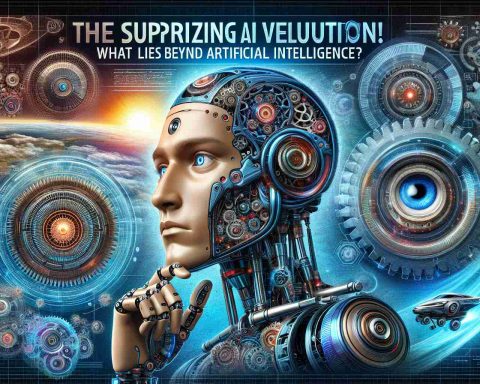The concept of “technological resurrection” promises to redefine our understanding of life and legacy in the digital age. Emerging technologies are presenting groundbreaking possibilities for the future, where deceased individuals could achieve a digital form of existence. This possibility is not the stuff of science fiction; rather, it’s a burgeoning field at the intersection of artificial intelligence, data preservation, and digital ethics.
Imagine a world where your thoughts, mannerisms, and voice are preserved indefinitely. Researchers are developing sophisticated algorithms capable of creating digital avatars that mimic a person’s personality with astonishing accuracy. These digital replicas could be built using data collected from social media, recordings, writings, and other digital footprints left behind by individuals.
AI and machine learning play a crucial role in this futuristic endeavor. By analyzing vast amounts of personal data, these technologies can create comprehensive profiles capable of simulating conversations or even making predictions about what the person might say or do in various situations.
However, the concept of technological resurrection raises numerous ethical questions. Who controls these digital avatars, and how can their integrity be ensured? Furthermore, there are societal implications regarding privacy and the rights of the deceased.
As we stand on the cusp of this new era, society must navigate the ethical challenges it presents. While the prospect of technological resurrection is thrilling, it requires careful consideration and responsible implementation to honor both the complexities of human identity and the sanctity of individuality.
The Future of Life After Death: Advancing Technological Resurrection
The idea of “technological resurrection” is sparking intriguing debates worldwide, yet there are copious facets not previously unveiled. One such aspect is its potential ramifications on global economic structures. If digital avatars of the deceased can offer insights from past experiences or even continue contributing to creative fields, how might this shift labor dynamics? Could the digital lives of experts past eventually offer endless consultation without compensation, altering job availability and market demands?
Moreover, technological resurrection provides a unique opportunity to preserve endangered languages and cultural practices. By perpetuating the digital voices and customs of native speakers, future generations could have direct access to cultural heritage that might otherwise be lost.
Yet, this novel domain doesn’t come without controversy. Imagine the psychological impact on those grieving a loved one. Could interacting with a digital version of their departed friend or family perpetuate grief rather than bring closure? Could this immortal preservation trivialize the experience of loss itself, impacting emotional healing?
Privacy concerns remain a considerable contention. If one’s digital footprint can outlive their physical presence, who truly owns this posthumous data? And could it be manipulated for purposes that deviate from the individual’s authentic expressions?
Technological resurrection promises vast potential benefits but also challenges foundational ethical, legal, and emotional norms. As we venture deeper into this uncharted territory, careful consideration is essential.
For further insights on emerging technologies and digital ethics, visit Wired and explore MIT Technology Review for comprehensive discussions on digital legacy.

















